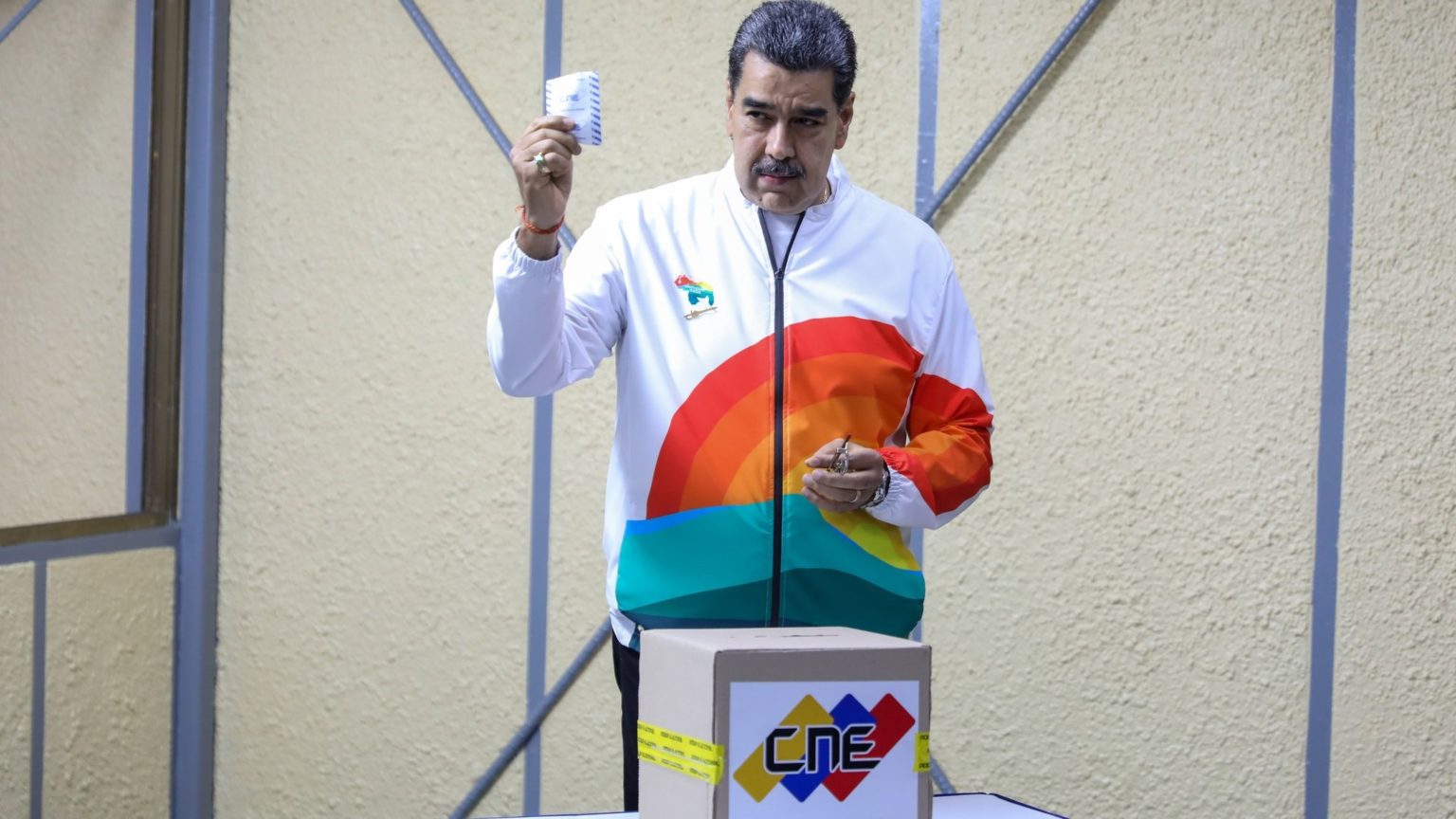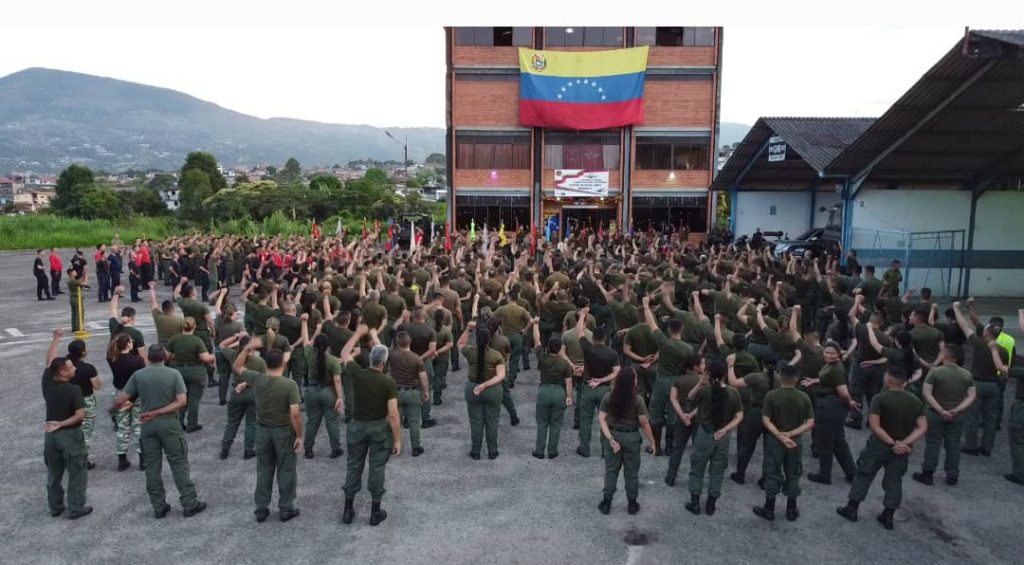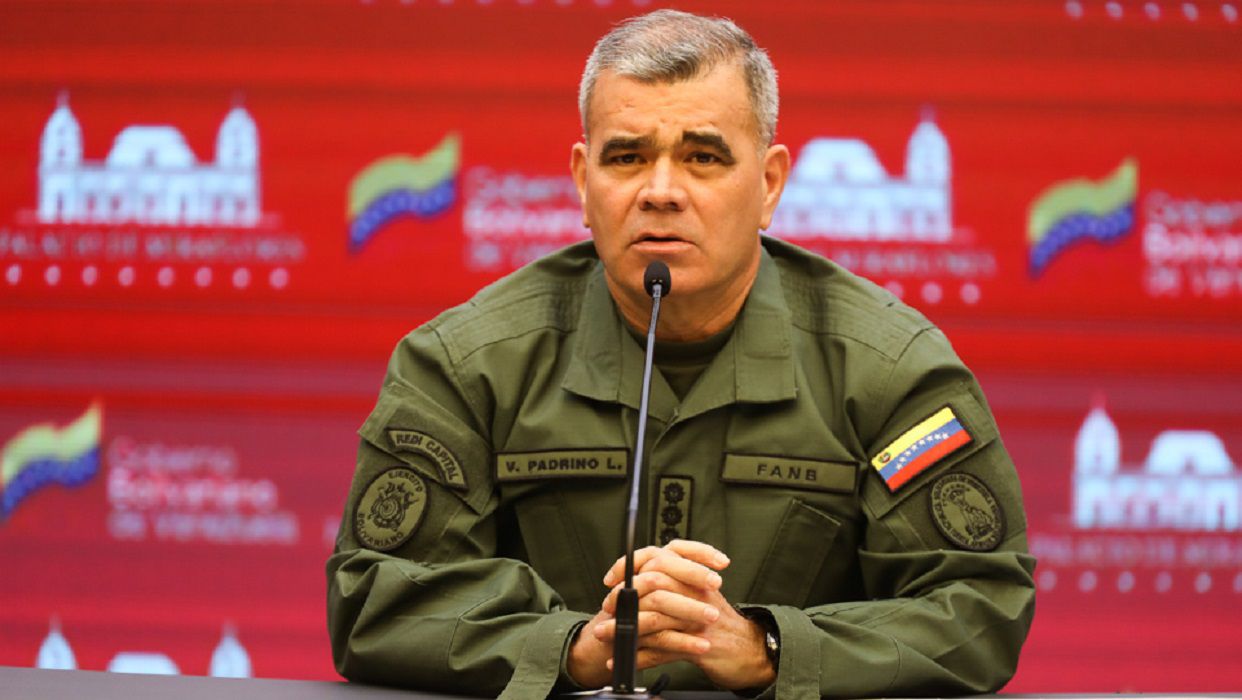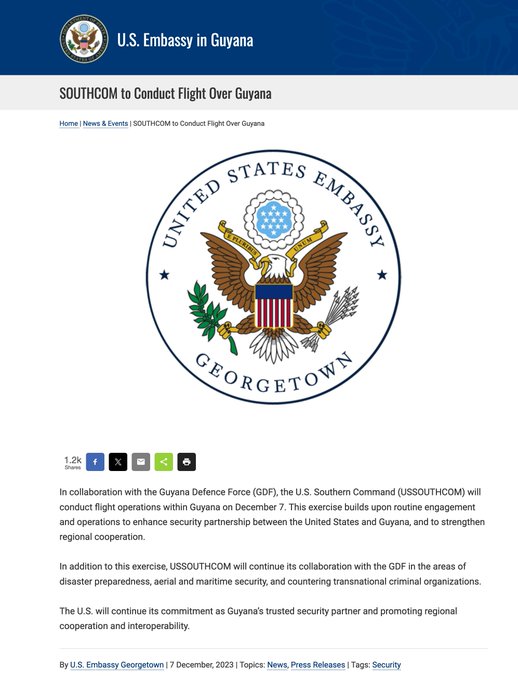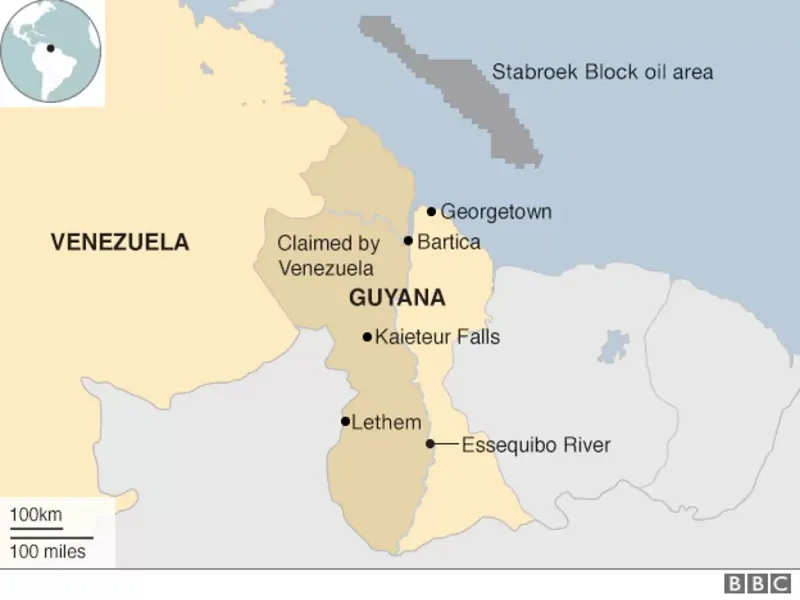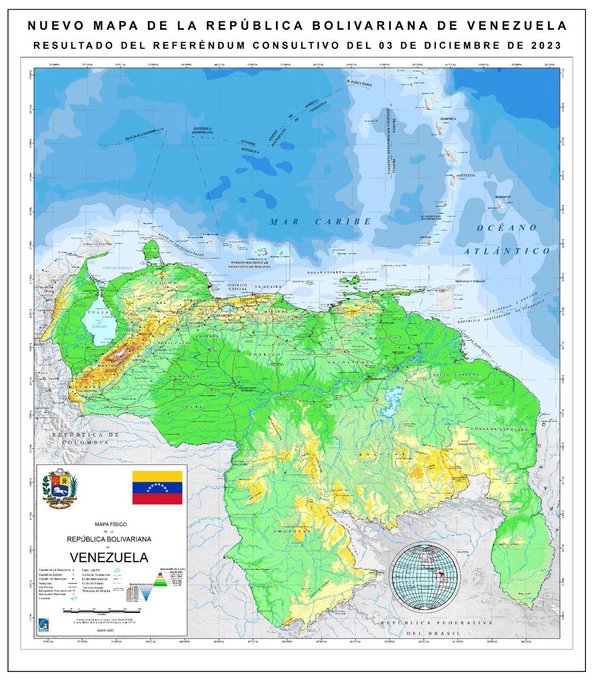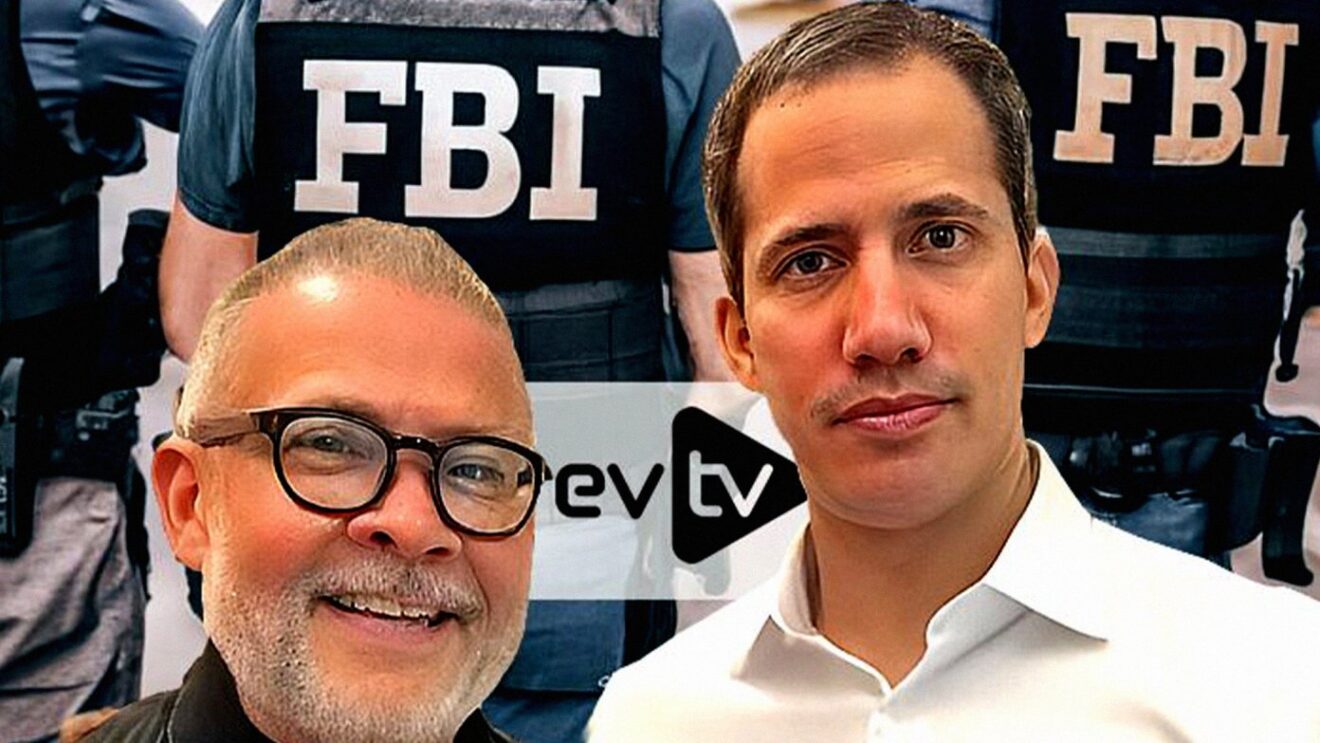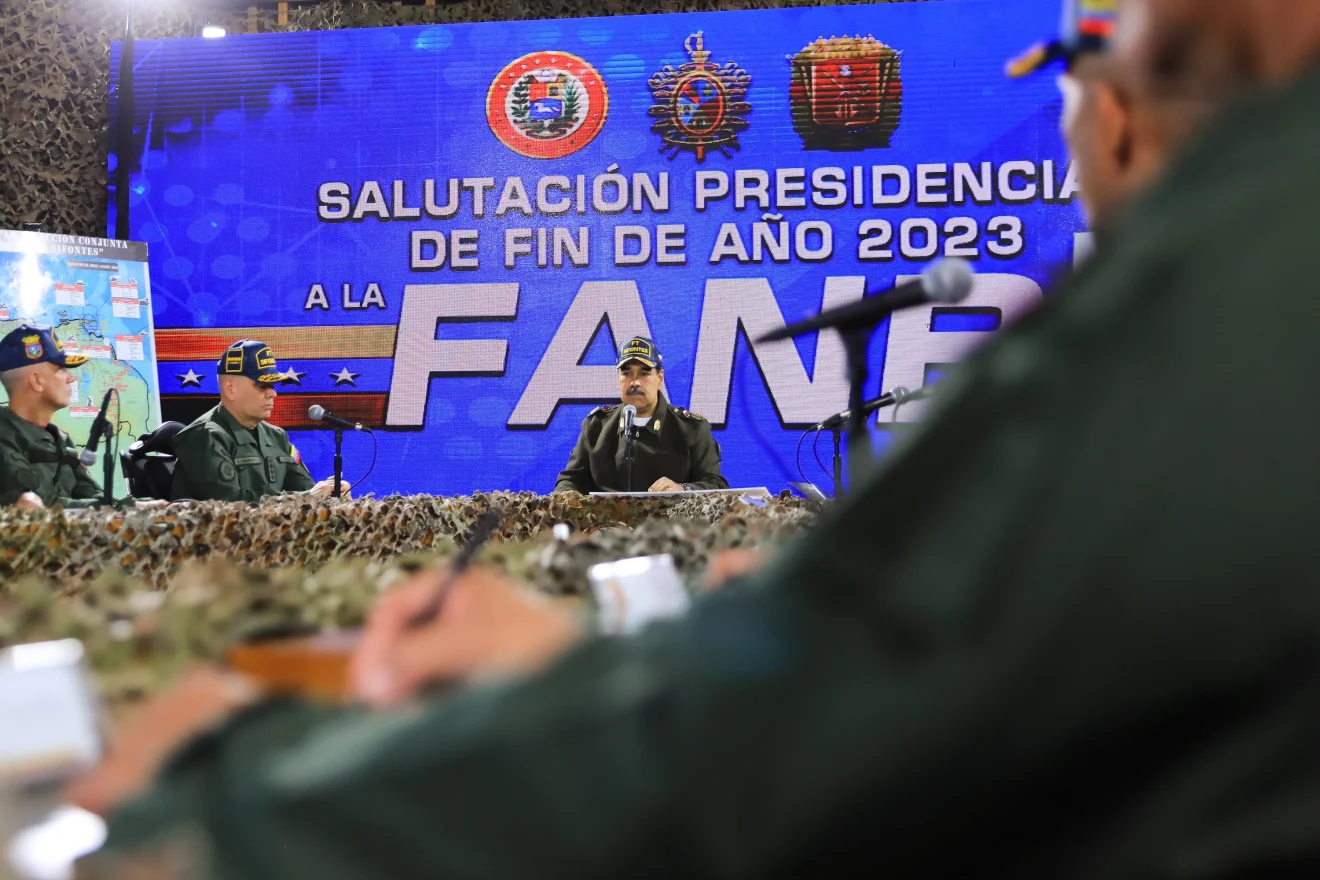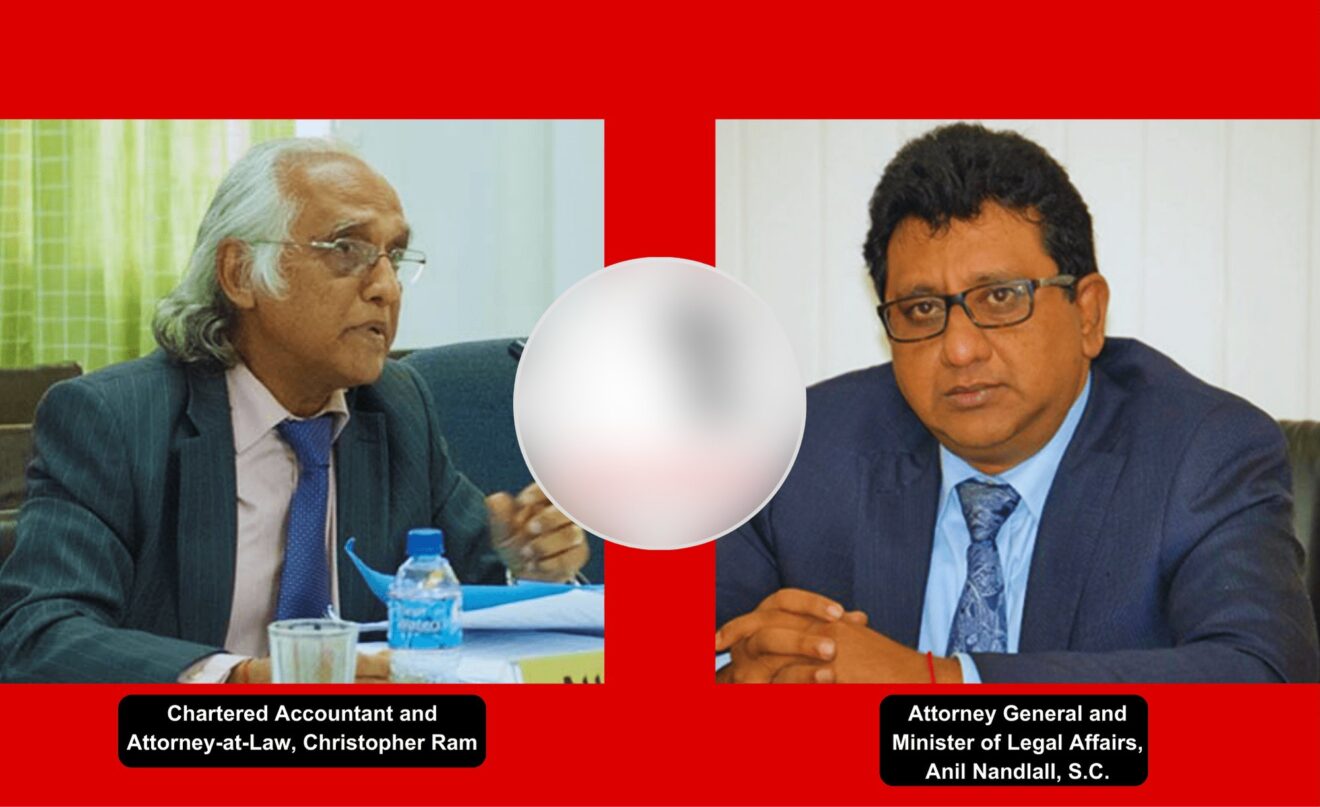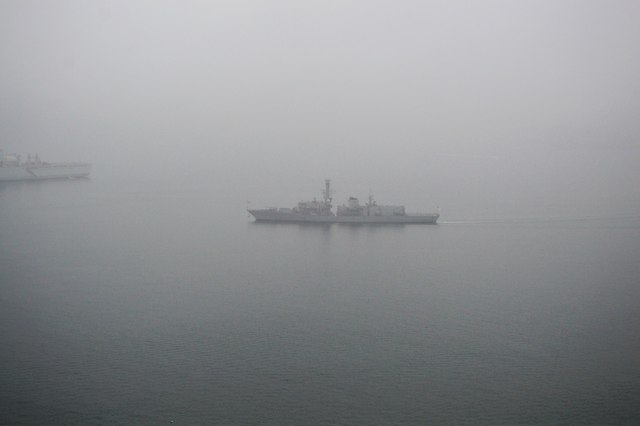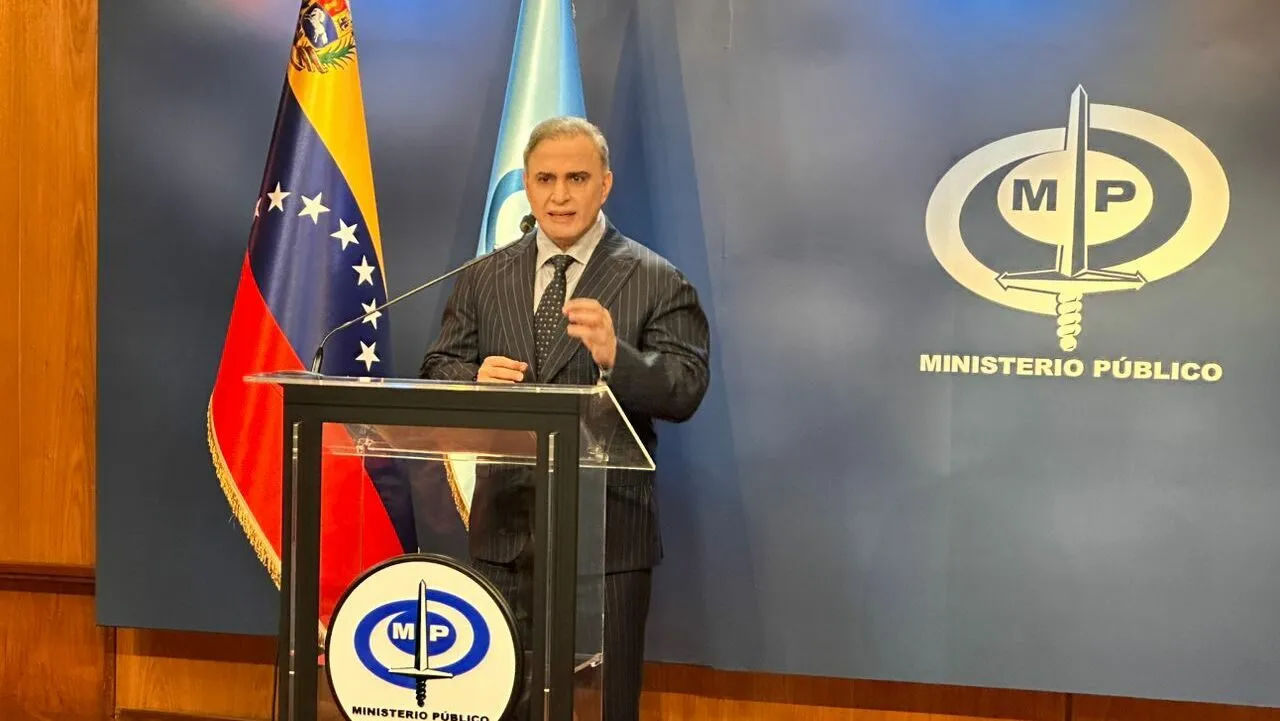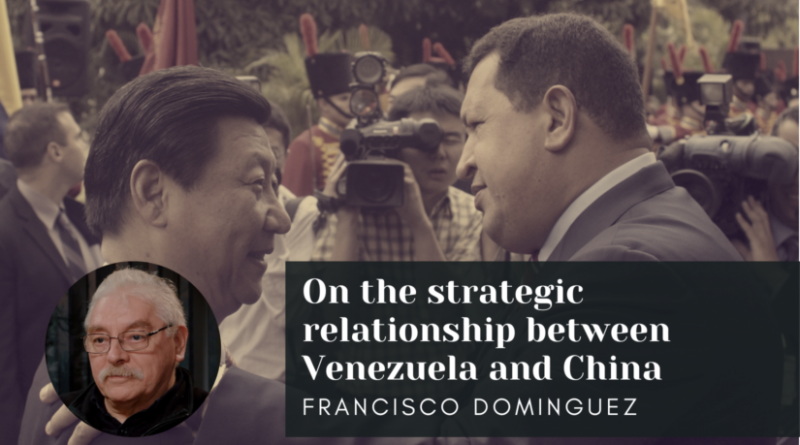 On the Strategic Relationship Between Venezuela and China
On the Strategic Relationship Between Venezuela and China
DECEMBER 8, 2023
By Francisco Dominguez – Nov 30, 2023
During a state visit to the People’s Republic of China in September 2023, Venezuelan president, Nicolas Maduro met president Xi Jinping and both agreed to strengthen the relationship of their countries by establishing seven sub commissions to elevate it to the level of ‘all-weather strategic partnership’. This is the culmination of a relationship that began with president Hugo Chavez’s first visit to Beijing in 1999, the very first year of his presidency.
Chavez’s first visit went well beyond friendly diplomacy since Venezuela’s president and the then president of China, Jiang Zemin, signed fifteen cooperation and commercial agreements. This was followed by President Jiang’s visit to Venezuela in 2001. Trade between the two countries in 1998 amounted to a paltry US$182.8 million, which would grow hundred-fold by the 21st century’s second decade.
In his 1999 visit Chavez described the People’s Republic as “a true model and example of mutual respect”, adding “we [in Venezuela] have developed an autonomous foreign policy, independent from any world power and on that, we resemble China.” After that, high officials from both governments would visit each other’s country to develop a commercial and political relationship, which has grown stronger ever since.
Whilst Hugo Chavez was president of Venezuela, he visited China in 2001, 2004, 2006, 2008, 2009, 2010, 2011, 2012, and 2013. President Maduro did so in 2013, 2015, 2018, 2021 and 2023. For their part, Chinese leaders also visited Venezuela: after Jiang Zemin’s 2001 visit, Xi Jinping (then vice-president) visited in 2009 and in 2013, president Hu Jintao planned a visit in 2010 (interrupted due an earthquake in China), and Xi Jinping, as president, visited in 2014.
This detailed article by Francisco Dominguez – an expert on Latin American politics, National Secretary of the Venezuela Solidarity Campaign, and Friends of Socialist China advisory group member – endeavours to chart the evolution of the relationship between Bolivarian Venezuela and the People’s Republic of China and its significance for Latin America as a whole. This article was first published in Friends of Socialist China.
Introduction
Being a consummate strategist, Hugo Chavez understood earlier than other Latin American left-wing leaders, the significance and weight of China in world politics and economics, especially, the rising Asian power’s commitment to build a multipolar world. Chavez, an avid reader, endowed with a formidable intellect, was also aware not only of the significance of the 1949 Chinese revolution and the leading role played by Mao Zedong, but also of Deng Xiaoping’s economic reform in bringing about China’s extraordinary economic development. He knew that given the affinities between the Bolivarian and Chinese revolutions, the People’s Republic was a friendly ally.
Chavez communicated as much to his host, China’s president Jiang Zemin, and to the people of China in his first visit to the People’s Republic in October 1999. During the visit he went to Mao’s Mausoleum and declared, “I have been a Maoist all my life”. The 1999 visit to China was part of a tour for markets for Venezuelan and potential commercial partners to help break the overwhelming economic dominance of the United States over Venezuela. The tour included visits to Hong Kong, Japan, South Korea, Malaysia, Singapore and the Philippines.
Though the tour produced positive results in all the other Asian countries, the outcome of his visit to China went well beyond all expectations: to the already existing eight cooperation agreements between Venezuela and China signed since Chavez coming to office in February 1999, his visit in October produced seven more covering the fields of energy, oil, credits to purchase agricultural machinery, investment, diplomacy and academia.
Chavez combined his strategic political audacity in promulgating an anti-neoliberal constitution in 1999, with a vigorously independent foreign policy seeking to establish strong links of every kind with the People’s Republic of China, as an alternative to Venezuela’s heavy dependence on the US. The Comandante knew Washington had activated all its resources aimed at ousting him and eliminating his government – perceived by the US as an abhorrent anomaly. Chavez’s political courage is even more impressive considering that in 1999, Latin America, with the exception of Cuba, was a sea of neoliberalism.
Washington’s relations with the People’s Republic had begun to sour because in 1996 Clinton had authorised a visit by Taiwan president, Lee Teng-hui, reversing a fifteen-year-old policy against granting visas to Taiwan’s leaders. Worse, in May 1999, NATO, during its war against Yugoslavia, had “accidentally” bombed the Chinese embassy in Belgrade killing three Chinese journalists. Though for Venezuela and China, the United States was an important trading partner, they both agreed to comprehensive levels of cooperation knowing that over time it would be viewed with hostility in Washington.
Hugo Chavez opened the gates and was a pioneer in the relations with the Peoples’ Republic of China for the rest of Latin America. Chavez was elected in 1999; the second left wing government in this ‘Pink Tide’ to be elected was Lula in 2002 in Brazil, who would be inaugurated in 2003. That is, four years later. Between 1999 and 2003, Chavez’s government faced intense US-led destabilization, which included right wing street violence, a worldwide media demonization campaign, national protests, economic sabotage, a short-lived coup d’état and a 64-day oil lockout that nearly brought about the country’s economic collapse. Though fully aware of this context, president Jiang Zemin paid a formal visit to Venezuela in 2001, occasion in which both countries decided to establish a “Strategic Association for Shared Development” and set up a High Level Chinese-Venezuelan Commission.
Venezuela and China: over two decades of growing partnership
The 15 agreements signed in 1999 between the Bolivarian Republic of Venezuela and the People’s Republic of China were followed by the two countries agreeing to establish a “Strategic Association for a Shared Development” after Premier Jiang Zemin’s visit to Caracas in 2001. That this was coupled with the establishment of High-Level Chinese-Venezuelan Commission attests, with the benefit of hindsight, that the political leadership of the two nations grasped the strategic significance of the relationship.
In September 2000 a Joint Commission of Trade met, opportunity the Venezuelan government used to issue communiqué to support China’s entry into the World Trade Organization and recognise the People’s Republic of China as the only and legitimate representative of the Chinese people, reaffirming support for the principle of “one country, two systems” as a means of reunification.
Chavez made a second visit to China in July 2001 with the objective of consolidating the ten-year Strategic Partnership (2001-2011) signed with president Jiang Zemin in the same year. In his visit Chavez stressed the affinity of the Bolivarian revolution with the Chinese revolution, noting especially the fact that both nations had entered the 21st century without having accepted any imposition from anybody. They were determining their own destiny through their own political, social and economic model, based on their own rich culture, and furthermore, both countries were promoting international relations based on justice, the self-determination of nations and respect for the sovereignty of all nations.
This occurred in 2001, at a time when, despite growing social mobilisation and an acute crisis in Latin America, there was no inkling the region would be soon engulfed by a Pink Tide of left-wing governments. Lula was elected president of Brazil in October 2002, Nestor Kirchner in Argentina in 2003, Evo Morales would be elected president of Bolivia in December 2005 and Rafael Correa in Ecuador in 2006, to mention the most important ones.
Some political stability returned to Venezuela after Hugo Chavez won a recall referendum in August 2004. Chavez visited the People’s Republic again in November 2004, in a very different context since it was after the short-lived April 2002 coup and the US-led 64-day long oil lockout in 2003. Brazil sent 520,000 barrels of gasoline to help relieve the acute shortages caused by the lockout, along with twenty oil experts to restart Venezuela’s oil industry, sabotaged by opposition engineers.[1] China’s new president, Hu Jintao, received Chavez at a moment when China’s investment in Venezuela was the largest in South America. Cooperation agreements were signed on energy and mining, technical assistance, infrastructure, agricultural machinery, the military and housing. In 2005 Venezuela would establish a vice-ministry for Asia, the Middle East and Oceania.
In Chavez’s fourth visit to China in 2006, another Joint High-Level Commission meeting was held in Beijing, which led to the signing of 31 new cooperation agreements and the establishment of a Venezuelan Consulate in Shanghai. In this visit the two countries signed 12 cooperation agreements on energy, including joint ventures in the oil industry in Venezuela through their respective state oil companies, and the training of 195 Venezuelans in the use of perforation drills. Venezuela agreed to increase oil supplies to the People’s Republic, the joint building of 18 oil tankers, jointly explore the possibility to produce ethanol in Venezuela and an energy-saving project through Chinese technology on solar panels.[2] This was followed by the sixth meeting of the Joint High-Level Commission in 2007, when 45 more cooperation agreements were signed involving areas such as energy, finances, communication, technology, infrastructure, mining, agriculture, education and tourism.
Chavez visited China for the fifth time in September 2008 leading to the renewal of the Venezuela-China Joint Fund, with a commitment of US$6bn. In October that year, as a result of the growing Venezuela-China cooperation, Venezuela successfully launched its first ever satellite, ‘Simon Bolivar 1’. It was built by the China Great Wall Industry Corp. under an agreement signed in November 2005, was operated by the Bolivarian Agency for Space Activities and offered, free of charge, modern telecommunications such as broadband internet, high-definition television and mobile phone services to the whole of Latin America.[3] At the time (29/10/2008) France 24, in sour-grapes mood, reported, “The space lab – the pride of Hugo Chávez’s regime – is located at the heart of an air force base. In front of the first security checkpoint, a placard warns visitors: “Socialist fatherland or death”. Venezuela-China cooperation on space programme would lead to Venezuela launching two more satellites, the 1st Venezuelan Remote Sensing Satellite (VSSR-1) in 2012 and the VSSR-2 in 2017[4], named Francisco de Miranda and Antonio Jose de Sucre, respectively, after 19th century leaders of Venezuelan and Latin American Independence.
Hugo Chavez paid a sixth (his last) visit to the People’s Republic in April 2009 to strengthen the strategic alliance with China and when he met president Hu Jintao he asserted, “Nobody can deny the world’s centre of gravity has moved to Beijing”. This had been preceded by a visit to Venezuela by then vice-president Xi Jinping in February that year. Both countries agreed that Venezuela would increase its supply of oil to China from 380,000 barrels a day to 1 million by 2013 for which a Venezuelan oil refinery would be constructed in Chinese territory and they would establish a binational shipping company to transport the crude. In December 2009, after the eighth meeting of the Joint High-Level Commission held in Caracas, 29 more agreements were signed involving the areas of energy, science, technology, aerospace, economics, trade and social issues.[5]
In 2010 forty-eight agreements were signed by China and Venezuela, year in which the Development Bank of China issued a large-scale loan of US$20bn to Venezuela. The ninth meeting of the Joint High-Level Commission met leading to the signing of 39 agreements in areas such as mining, science and technology, industry, commerce, cultural exchange, agrarian developments, communes, and housing. The Joint High-Level Commission met in Caracas in November 2011 for its tenth meeting focusing on reviewing progress on joint projects but also a Venezuelan Parliamentary Friendship Group with China was established.
From 1999 until 2011 a total of 430 Venezuela-China agreements were signed out of which, 171 were cooperation projects on energy and mining, agriculture, science and technology, infrastructure, industry, aerospace, culture, social and economic and trade issues. They also included projects in areas such as iron and aluminium, food production, housing, importation of buses and vehicles, health and medical supplies, and electric power.
From 2012 onwards China provided financial assistance to Venezuela’s massive housing programme and, as a result of the 11th meeting of the Joint High-Level Commission convened in Beijing, cooperation expanded to mining (certification, exploration, and geological prospecting of reserves of minerals), oil (supply oil platforms), finances (Joint Fund with PDVSA), electricity, and academia.
The premature death of Hugo Chavez on 5 March 2013, was received by the United States and Venezuela’s opposition as a golden opportunity to finish the Bolivarian Revolution. Thus, the opposition contested Nicolas Maduro’s electoral victory in April 2013, which they followed with a six-month wave of street violence in 2014, complemented with economic sabotage bringing about acute shortages of basic items of daily consumption, primarily food. In 2015 US president Obama declared Venezuela “an unusual and extraordinary threat to the national security of the US”, opening the floodgates to an unstoppable raft of nasty unilateral coercive measures (aka ‘sanctions’). He also expanded US energy output through fracking, deliberately making oil prices plummet to less than US$30 the barrel.[6] One the worst crisis in Venezuelan republican history began.
US-led aggression against Venezuela was highly damaging to its economy and its people since it took it to the verge of collapse, a state it was in from 2014 to 2020.[7] Nevertheless, the support and cooperation from the People’s Republic of China to Venezuela never weakened. Quite the opposite, it was intensified as solidarity especially during the very hard years of the Covid-19 pandemic, period when the US blockade of Venezuela was at its most intense. Furthermore, US president Donald Trump declared the 2018 Venezuelan election fraudulent and the victor, president Maduro, illegitimate, leading the US to recognise self-proclaimed ‘interim president’, Juan Guaidó, who engaged in massive corruption with US-controlled Venezuelan assets.
The 12th and 13th meetings of the Joint High-Level Commission took place in September 2013 and July 2014, respectively. The former held in China was attended by president Maduro and the latter held in Caracas, attended by the now president Xi Jinping. The two countries signed more agreements, on the same areas as at previous meetings.
President Maduro travelled to the People’s Republic in January and September 2015, the latter as part of the 15th Joint High-Level Commission meeting where, among the 11 new agreements, there was the Venezuela-China Joint Development Plan (2015-2025), the Framework Agreement for Cooperation in Special Economic Zones in Venezuela and the Framework Agreement for a Special Financial Facility of up to US$5bn.
By 2016, China and Venezuela had developed over 18 oil production projects with a total investment of about US$5bn, China had approved financing of about US$700 million in projects in the Orinoco Mining Arc, a region rich in gold, coltan, diamonds, iron, bauxite, and other strategic minerals. By February 2017, China and Venezuela had signed a total of 790 cooperation agreements in strategic areas.[8] In his 10th visit to the People’s Republic, president Maduro, within the context of the 16th meeting of the Joint High-Level Commission held in Beijing, signed 28 more cooperation agreements in the usual areas of oil, science and technology, mining, economics, security and health.[9] President Maduro characterised this visit as ‘historic’ because he signed a Memorandum of Understanding with China “for cooperation on the Belt and Road Initiative”.[10]
Between 2000 and 2018 Venezuela borrowed over US$67bn from Chinese institutions, about 48% of the total of China’s loans to the whole of Latin America. Specialists say that this is the biggest credit granted by China to any country in the world.[11]
This has led some pundits to ‘theorise’ that paradoxically in Venezuela’s quest to build a multipolar world, closer and growing economic relations with China as a counterweight to Washington, makes it increasingly dependent on Chinese investment, technological support and economic assistance, which “could very well lead to the replacement of an old dependency (United States) with a new one (China)”.[12] The continued strengthening of the Venezuela-China relationship and China-Latin America belies these fallacies.
Between 2008 and 2020 Venezuela accounted for 29.6% of the contracted projects undertaken by China in Latin America, well over Brazil (13.9%), Argentina (10.7%), Ecuador (7.5%), Mexico (6.7%), Colombia (6.2%), and Peru (4.2%). Confirming the strong nature of the China-Venezuela relationship, between 2010 and 2018 China has constructed numerous hospitals, roads, bridges, ports, airports, schools, hydropower projects, and housing projects.[13] By May 2023, Venezuela’s relation to China was upgraded from “strategic partnership” to “comprehensive strategic partnership”.
In September 2023, on occasion of a visit by president Maduro to Beijing at the invitation of China’s president Xi Jinping, the People’s Republic of China’s relationship with the Bolivarian Republic of Venezuela was further upgraded by to an “all-weather strategic partnership”. The event was described as follows: “The China-Venezuela connection is a key milestone in the shifting global political and economic landscape. In a changing world order, this partnership has the potential to provide Venezuela with economic prosperity, stability, as well as greater autonomy.”[14]
Both leaders and their respective governments see their relationship as a central component of building a multipolar world, highly valuing “the important role of the China-CELAC Forum (CCF) in promoting China-Latin America and the Caribbean (LAC) relations. Xi Jinping and Maduro are willing to strengthen communications and coordination in matters related to the CCF, so as to promote a stable and lasting China-LAC relations in the new era, characterized by equality, mutual benefit, innovation, openness and well-being for their peoples. The Chinese side appreciated Venezuela’s role in LAC affairs, as well as its active stance in favour of the continued development of cooperation between the region and China.”[15]
The evolution of Venezuela-China relations charted above has taken place in the context of both the severe decline of the United States and the meteoric economic rise of the People’s Republic of China to being Latin America’s main trading partner, which we examine below.
The decline of the United States
The rise of Chavez and Chavismo can be found in the specifics of the decline and eventual collapse of the oil-dependent, parasitic, Venezuelan political economy whose terminal manifestation was the 1989 social explosion known as the Caracazo. In turn, the fall of Venezuela’s ancien régime occurs at the end of Latin America’s lost decade in a context dominated by the economic and political decline of US imperialism. In 1960, US GDP represented 40% of the world’s total, by 2000 – two years after the election of Chavez – it had gone down to 30%.[16]
The United States has sought to counteract its decline by building up its military capabilities thus massively increasing its defense budget from US$47.35bn in 1960 to US$320.09bn in 2000 (and to US$800.67bn in 2021), that is, a staggering increase of over 600% in 2000 (and 1,700% in 2021).[17] US military muscle has been flexed primarily in wars in the Middle East, presented as a ‘global war on terror’ that began in 2001 with US military action against Afghanistan. This was followed by war against Iraq in 2003, the war against Syria (depicted as ‘targeted operations to defeat ISIS’), the brutal military bombardment of Libya leading to the assassination of Muammar Gaddafi in 2011, and a vigorous military support for Saudi Arabia in the civil war in Yemen.
The cost of 20 years of the US ‘war on terror’ has thus far been more than 900,000 people killed directly and about 4 million who have died indirectly as a consequence of it, 38 million people have been displaced, and an estimated cost of US$8,000bn to the US taxpayer. The US is currently conducting counterterror activities in 85 countries[18] and it has about 800 highly costly military bases around the world.
Given US excessive expenditure (plus poor economic performance) in the last decades, US governments have addressed these severe weaknesses of the country’s economy by borrowing money through the issuing of Treasury bonds, leading to a dramatic increase in the US public debt: in 1960 it was US$286bn, by 1980 it had gone up to US$908bn and by 2000 had reached US$5,764bn. That is, between 1960 and 1980 US public debt hovered around 30-40% of its GDP, by 2000 it was around 60% of GDP, by 2020 it had reached over 100% of GDP and by 2023 it was 120% of GDP.[19] Currently US public debt is over US$33tn (the world’s largest in volume) and with a GDP of US$27tn, the difference is a staggering US$6tn[20], equivalent to the combined GDP of all countries in Latin America and the Caribbean.[21]
The World Bank considers that countries with a debt-to-GDP ratio above 77% for a prolonged period experience significant slowdowns in economic growth.[22] Between 1961 and 2017, the US average rate of economic growth was barely over 2%; it had been 4.4% in 1970, that is, a steady downward long-term trend.[23] Furthermore, the US banking system triggered a massive world recession in 2008, and then it was hit by the Covid-19 pandemic before it could fully recover.[24]
As a consequence of military overspending, persistent and growing trade deficits, and poor economic performance, the US economy is unable to raise sufficient savings to devote to domestic investment. It is estimated that “saving and investment have declined substantially as a percentage of GDP over the last 40 years, and have collapsed almost entirely since the financial crisis” that, furthermore, investment “barely keeps pace with depreciation”, and, in conclusion the US, “overall, does not save enough money to fund all of the worthwhile domestic investments and relies substantially on foreign investors to make up the difference.”[25]
These figures came in piece written for the Tax Foundation in 2014 but since then the situation for the US economic in all these aspects got significantly worse. The US could increase the level of savings available for investment but they will have to be drawn by reducing either the population’s consumption or military expenditure. The latter, especially with the current conflicts in Ukraine, Gaza and the deployment of military muscle against China around Taiwan, is politically untouchable. Meanwhile wages have actually stagnated for decades: “Between 1979 and 2020, workers’ wages grew by 17.5% while productivity grew over three times as fast at 61.8%.”[26] Furthermore, US direct investment abroad outstrips inward foreign direct investment; in 2021 and 2022, the difference was US$1,331bn and US$1,326bn, respectively.[27]
One crucial consequence has been the decades-long neglect of the country’s infrastructure, which compounds all the problems identified. The American Society of Civil Engineers (ASCE) in 2021 reported that “an estimated 6 billion gallons of treated water [are] lost each day in the U.S., enough to fill over 9,000 swimming pools”, 43% of our public roadways [are] in poor or mediocre condition, a number that has remained stagnant over the past several years”, “42% of the 617,000 bridges are at least 50 years old, and 46,154, or 7.5% of the nation’s bridges, are considered structurally deficient”, to mention just a few of the neglected areas.[28]
An often-neglected dimension of US economic and political decadence is the rise of poverty in the wealthiest country on the planet. In a US Senate hearing in 2014 on Childhood Poverty, Senator Bernie Sanders stated that “the US has by far the highest rate of childhood poverty of any major country on earth”, this was, “22% of our kids living in poverty.” Sanders compared it with other countries: Denmark, 3.7%: Finland, 3.9%; Norway, 5.1%; Iceland, 7.1%; Austria, 8.2%, Sweden, 8.2%; Germany, 9.1%; South Korea, 9.4%; UK, 9.8%; France, 11%; New Zealand, 13%; Poland, 13.6%; and Canada, 14%. That is, Sanders went on, “in our society one in four of our children get their nutrition from food stamps.” He also said the reason the US has more people in jail than any other country on earth, is the high level of school drop outs, which, in turn, is caused by the high level of childhood poverty. He also said childhood poverty manifests itself in the fact that “more than one in five children in America live in households that lack consistent access to adequate food because their parents don’t make enough money […] the number of homeless children has gone up by 73%, since 2006 in every state in the country there are families living with their kids in cars or emergency shelters”.[29]
A Government Accountability Office (GAO) study commissioned by Senator Sanders issued in September 2019 concluded not only that “the rich are getting richer and the poor, poorer”, but also the former are living longer lives, while poor Americans are dying young, leading Sanders to conclude that “poverty is, in effect, a death sentence.” The Report found that 48% of the poorest 20 percent in the age 51-61 in 1992 had survived by 2014, whereas among the richest 20 percent 75.5 percent were alive. “The poorest 20 percent were twice as likely to die over the 22-year period than the wealthiest 20 percent.” The same disparity was also found by the Report on life expectancy (see our comments below on China’s life expectancy), “only half of those without college degrees and in the bottom 20 percent of the income distribution survived to 2014. Among those with college degrees and in the top 20 percent, based on mid-career earnings, 80 percent were still alive.”[30] According to the US Census Bureau, in 2022 there were 37.9 million people living in poverty (11.5 percent of the population).[31] In September 2022 the Congressional Budget Office (CBO), covering the 1989-2019 period, reported that “In 2019, families in the top 10% of the distribution held 72% of total wealth, and families in the top 1% of the distribution held more than one-third; families in the bottom half of the distribution held only 2% of total wealth,” a situation Sanders described as “obscene.”[32]
US poor economic performance reduces the country’s ability to successfully compete in the world, and has led to a growing trade deficit. In 1989 its trade deficit was US$109,399bn, deficit that grew year after year and which by 2022 had reached US$1,177,372bn, that is, an 11-fold increase.
As far as US-Latin America relations are concerned, throughout three decades (1970-2000) after overthrowing Allende in Chile, US governments have imposed brutal neoliberal policies on its ‘backyard’ (the “Washington Consensus”). Neoliberalism massively impoverished millions of people, undermined the sovereignty of the countries South of the Río Bravo (Grande), greedily appropriated their natural resources, vigorously forced wave after wave of privatisation of state assets, and weaponized the IMF and World Bank to impose nasty structural adjustment packages, driving millions into desperate deprivation. By 1990 the proportion of the population living below the poverty line was 48.3%, that is, 200 million people, figure that slightly declined by 1999 to 43.8% (211 million people). This went together with unprecedented levels of income concentration at the top with 10% of the richest households receiving over 30% of total income[33] (or even higher), making Latin America the most unequal region in the world.
No wonder that in the 2000-2010 decade, radical social movements and left wing political currents ousted and defeated one neoliberal government after another (in some cases through mass insurrections) giving rise to the ‘pink tide’ that changed the region’s complexion for good. In 2005 a continental movement led by Chavez defeated US efforts to incorporate Latin America into a US-dominated free trade zone from Canada to Patagonia. This political offensive by progressive forces against neoliberalism weakened further an already declining United States, situation that coincided with the economic rising of the People’s Republic of China.
Latin America: Global South’s vanguard in building a multipolar world
Between 1960 and 2000 trade between the People’s Republic and Latin America was negligible, however early in the 21st century’s second decade (2012, at the height of the pink tide) trade between them had increased twenty-one fold. By then the People’s Republic of China had become the main trading partner of several Latin American countries, in an economic relationship that has continued to expand. Annual trade between the People’s Republic and Latin America and the Caribbean grew from US$12bn in 2000 to US$445bn in 2021, that is, a 28-fold increase.[34]
This development was in line with China’s extraordinary rise in the world economy: In 1960 China’s GDP was less than US$60bn whilst that of the US was US$543bn; by 2022 China’s GDP had gone up to over US$17tn[35] whilst that of the US was US$25tn[36]. That is, the US economy had grown 46-fold, whereas China’s had grown 283-fold. Furthermore, in 1980 China’s rate of poverty was nearly 100 percent; after taking nearly 900 million people out of poverty, by 2023 this had declined to 12.6 percent whilst that of the United States is 17.8 percent.[37] By 2021 China had managed to eradicate extreme poverty. In 2022, Ma Jiantang, Secretary of the Party Leadership Group of the Development Research Center, stated that “China’s battle against poverty has benefited the largest number of people in human history.”[38] UN Secretary-General, Antonio Guterres, celebrated it as “the greatest anti-poverty achievement in history.”[39] Life expectancy in China, a more accurate measurement of welfare, went from about 40 years in 1950 to over 77 years in 2023, that is an increase of 37 years.[40]
China became South America’s largest trading partner, and though the US continued to be the largest trading partner of Central America, China rose to the second position. And, although Mexico is heavily intertwined with the US in a comprehensive free trade agreement, for the period 2000-2021 its trade with China increased 40-fold.[41] Trade between China and Latin America is expected to grow to more than US$700bn by 2035.
These commercial links have been strengthened by free trade agreements between China and Latin American countries: China has signed free trade agreements with Chile (2005), Peru (2009), Costa Rica (2011), Uruguay (2016) and Ecuador (2023) and 21 countries have, thus far, have signed to China’s Belt and Road Initiative.[42] Just to give the flavour of such developments, according to The Economist (18 Jan 2023), Chile, for example, sends 67% of its copper exports and Brazil 70% of its soyabean exports to China. By 2022, Latin America’s exports to China had reached US$184bn.[43]
Such developments between Asia’s economic giant and Latin America are taking place at a breath-taking pace, leading a US think tank – Wilson Center – to describe China’s growing influence in Latin America as the economic displacement of the United States:
“In 2000, about 3 percent of the region’s population lived in a country where the economic weight of China was greater that that of the United States. Two decades later, that percentage had grown to 60 percent”.[44]
The same applies to Foreign Direct Investment (FDI) from China into Latin America. In 2000-2004 the average Chinese FDI into Latin America was US$1bn, which in 2005-2009 went up to over US$3bn. It went further up in 2010-2014 to nearly US$12bn, getting to US$14bn, to US$11bn in 2020-2022. The annual average Chinese FDI to Latin America in the period 2000-2022 was US$8bn, that is, an accumulated total of US$184bn that generated a total of almost 630,000 jobs. China’s FDI in Latin America has covered diverse areas including automobile, electronics, energy, metals, minerals, mining, telecommunications, transport, and much more.[45]
The trends examined above show the growing strengthening of the relationship between Latin America and the People’s Republic of China, which has recently being depicted as having evolved significantly, “showcasing immense potential for future growth and cooperation. This partnership has opened up a wide range of opportunities for both regions, with economic, political, and social implications that can shape the global landscape.”[46]
China’s economic weight in the region grows apace. In January 2023, Brazil’s president Lula da Silva spoke about the possibility of negotiating a Mercosur-China free trade agreement. Chile’s president endorsed China’s application to join the Comprehensive and Progressive Agreement for Trans-Pacific Partnership (CPTPP). Additionally, China signed a US$1bn agreement with Bolivia to explore lithium. China’s investment in Argentina’s lithium is worth about US$960 million. China is also investing in Brazil’s state-owned semiconductor centre, CITEC. Additionally, Lula and Argentinian president Alberto Fernandez paid separate visits to Huawei during trips to China, showing Latin American interest in deepening IT cooperation with the People’s Republic, “much to the United States’ dismay”.[47]
In a visit to China in April 2023, Lula signed 15 agreements of wide-ranging cooperation but the “most important milestone was the signature of currency swap agreements between Brazil and China in March 2023.”[48] A month later, Argentina followed suit by agreeing to pay US$790 million worth of monthly imports from China from May 2023 onwards in RMB Yuan.[49] Brazil is the largest economy in Latin America and Argentina, the third largest.
The most important development in the region is the agreement signed by China and Brazil on 31 March 2023 to trade in their mutual currencies, allowing them to conduct their US$150bn annual trade and financial transactions directly, “exchanging RMB Yuan for Brazilian Real and vice versa, instead of using the US dollar for settlements.”[50] Ironically, 59 years prior, exactly on 31 March 1964, left wing democratically elected president of Brazil, Joao Goulart, was overthrown by a US-led coup d’état, leading to a 21-year long military dictatorship.
Three weeks later, Argentina’s government took the decision to settle US$1.04bn Chinese imports in April, and then US$790 million per month from May onwards in Yuan instead of US dollars. In January 2023, the People’s Bank of China had expanded its currency swap with Argentina by 35bn Yuan (US$5bn) to 165bn Yuan (US$ 22bn). Argentina’s Economy Minister, Sergio Massa said “These types of measures give our reserves greater strength and are key to improving the prospects for net reserves, giving us greater freedom and capacity to intervene in the face of those who speculate and overspeculate with the economic situation…”[51] As with Brazil, 47 years before (24 March 1976) a US-led coup d’état overthrew Argentina’s legitimate government and installed a military dictatorship that would assassinate 32,000 people in only six years.
The election of Javier Milei as Argentina’s president is likely to complicate, but not stop, Brazil’s proposal of a common currency for its mutual trade with Argentina and as a base for a Latin American common currency. Brazil is Argentina’s main trading partner in Latin America, so Milei’s threats to break commercially with Latin America’s giant may just be electoral demagoguery; it would be very difficult to implement and entirely self-destructive. Breaking commercially with China would also be disastrous since Argentina exports 57 percent of its soy to China, and the People’s Republic has invested heavily in Argentina’s lithium industry and energy sector. Not joining BRICS, as Milei’s main adviser Diana Mondino has announced, will substantially harm Argentina’s prospects of recovery. Let’s hope economic realities induce into Milei’s government a modicum of pragmatism and sanity.
And, a few weeks ago, on 21st October, the recently appointed BRICS New Development Bank’s president, Dilma Rousseff, met with China’s president, Xi Jinping to discuss ways to develop a new fairer and more equitable financial architecture aimed at allowing the participation of emerging markets and countries undergoing development. Rousseff also participated in the 3rd Forum of the Belt and Road Initiative (18-19 October 2023), where she said the BRI is one of most effective instruments to build a global community of shared future which is multipolar, inclusive and sustainable.”[52]
On 12 October 2023, Delcy Rodriguez, vice-president of Venezuela, at the Energy Week Forum held in Moscow, made an appeal to de-dollarize the oil market and called on the 31 countries targeted by US sanctions to jointly confront United States sanctions. She also pointed out that as a consequence of US sanctions, Venezuela’s oil industry had lost 4,000 million barrels of oil and, an equivalent of US$600bn.[53]
Although the People’s Republic of China is the second largest trading partner of Central America, which has been more US backyard than the rest of Latin America, the geopolitical shift away from the United States is also affecting it. These governments broke relations with Taiwan and established them with the People’s Republic of China: in June 2007, Costa Rica; in June 2017, Panama; in November 2021, Nicaragua; in August 2018, El Salvador; and in March 2023, Honduras.
The recently elected president of Guatemala, Bernardo Arévalo (August 2023), though he stated he would keep relations with Taiwan, he will also seek better relations with the People’s Republic of China.[54] All these Central American nations, with the exception of Costa Rica, have endured US interventions in the form of US-led coup d’état and even direct US military interventions. It is likely that very soon, the People’s Republic will stop being Central America’s second largest trading partner.
The salient features in China-Latin American relations are “complementarity” and “development”. The People’s Republic of China is an integral part of the Global South and Latin American cooperation with its already advanced economy, whose further development its inexorable, offers growing opportunities of mutual benefit.[55]
Conclusion
The People’s Republic of China has continued to develop strong economic, trade and political links with the Bolivarian Republic of Venezuela through thick and thin, even during the worst moments the South American nation experienced as a result of US sanctions. As recently as October 2023, the People’s Republic of China’s spokesperson, Mao Ning, welcomed the “resumption of political dialogue in Venezuela” and demanded the United States to “completely” eliminate the “unilateral and illegal” sanctions currently holds against the Bolivarian Republic of Venezuela.”[56]This stance of the People’s Republic of China gives confidence to other left wing and progressive (and even not very progressive) governments in Latin America of the solidity and coherence of its foreign policy towards the region and the Global South.
Furthermore, Latin America has seen what the People’s Republic can and does offer to their development, especially when compared to what the United States cannot and does not offer to the region. Whereas the People’s Republic of China offers huge resources for development and progress in every key field, and crucially, it respects their national sovereignty, the United States offers neoliberal austerity, aggression, unilateral coercive measures, military bases and political support for the most extreme political currents such as Uribe in Colombia, Añez in Bolivia, Bolsonaro in Brazil, extreme, right winger Milei in Argentina, and it persistently tramples upon their sovereignty.
There is no question that Hugo Chavez with his 1999 visit blazed the path for Latin America to develop similar links with the People’s Republic of China. And also there is no question that the original Pink Tide massively developed commercial, economic and political relations between the region and the People’s Republic of China.[57] US aggressive foreign policy against the Pink Tide governments pushed Latin America towards participating in the building of a multipolar world.
The US played a crucial role in the ousting of Manuel Zelaya in Honduras in 2009, the coup attempt against president Rafael Correa in Ecuador in 2010, the ‘constitutional’ coup against president Fernando Lugo in Paraguay in 2012, the electoral defeat of the Peronist government in Argentina in 2015, the impeachment of Dilma Rousseff in Brazil in 2016, the false accusation of corruption and imprisonment of Lula that facilitated the electoral victory of Jair Bolsonaro in Brazil in 2018, and in the nasty aggression against Venezuela, Cuba and Nicaragua.[58] And the US, of course, has been the mastermind of every attempt to overthrow Venezuela’s Bolivarian Revolution since 1999.
Latin America’s yearning for a better world began to take shape simultaneously with the emerging geopolitics being constructed primarily by the People’s Republic of China through the BRICS, the Shanghai Cooperation Organization, and the Belt and Road Initiative. They provide ample opportunities to the Global South for investment, markets, technology and credits, offering the real possibility of socio-economic development in an inclusive, multipolar, peaceful, stable world; possibility that has been denied to most of humanity in the unipolar world hegemonized by the United States.
An editorial of China Daily (26 July, 2023) ironized the US aggressive approach to its ‘competition’ against the People’s Republic of China as follows:
“It is not China that started the trade war between the two countries, nor is China suppressing the development of US tech companies. The Chinese military is not conducting so-called freedom of navigation operations off the US coast, nor is China meddling in the US’ internal affairs. And it is not China that is hyping up the need for countries to de-risk in order to create the impression of covert threats, nor is China reshaping supply chains to be exclusionary.”[59]
A Global Times editorial (11 February 2023) expanded this view by arguing that US aggressiveness is not applied to China only: “In 2022 alone, the US carried out 100 sanctions against others, involving 82 countries and regions. The number of entities on the US Treasury Department’s Office of Foreign Assets Control (OFAC) sanctions list has increased from 912 in 2000 to 9,421 in October 2021, a net increase of 933 percent.” The Global Times editorial accurately described and predicted current US behaviour:
“When Washington needs to suppress opponents, democracy is a weapon; when it needs to win over partners, democracy is a foundation. The anti-democratic “tyrant” talks about “democracy,” which is an insult to democracy. The hegemonic, bullying and domineering nature of US democracy is experiencing unprecedented internal and external shocks. From the Capitol Hill riots in 2021 to the once-in-a-century political chaos this year, “US democracy” has begun to show cracks from within. The successful democratic practices of other countries are seen as a formidable enemy by the American political elite, who are accustomed to self-importance.”[60]
Latin America’s progressive vision of a better, multipolar world neatly coincides with the People’s Republic of China’s foreign policy objectives, spelled out by president Xi Jinping in his speech “Community of Common Destiny” at the Boao Forum in 2015. President Xi’s argument is that the ‘win-win’ concept is grounded in the reality of the world international division of labour and the growing mutual trade and investment all nations engage in for which they require the actual means to permit such interactions such as free trade zones, “ports, railways, highways, airports and telecommunications links”.
Xi posited that all countries are “equal members of the international community with equal rights to participate in regional and international affairs” and that no civilization is superior to the other, it is only culturally unique. This is in stark contrast to the US whose elite presents itself as the “greatest country that has ever existed in history”, characterising, by definition, all other countries as inferior. This means, equality in international relations is a threat to its supremacy, and competition is a zero sum game of all against all. In short, the United States works to create ‘win-lose’ outcomes, out of which it benefits. In summary China’s foreign policy concept of mutual benefit expresses itself in its “win-win” policy, “the US concept is competition, zero sum games, and United States supremacy”.[61]
It is 24 years (October 2023) since Hugo Chavez first visited the People’s Republic of China starting a relationship that would grow stronger with each passing year and with every US imperialist aggression against the Bolivarian Republic of Venezuela. The thus far 790 cooperation agreements between the two countries and a myriad of joint bodies and institutions have been established, especially the Joint High-Level Commission, binational body that oversees, fine-tunes and develops their win-win relationship, attests to the strength of the relationship.
In his latest visit to the People’s Republic of China, president Nicolas Maduro declared that China and Venezuela have a relationship of “mutual intimate trust” and “true friendship” that share “a common destiny in the new world that is emerging” and both nations are committed to peace, development and cooperation. Thus, president Maduro gave full backing to president Xi’s objective to “build a community of shared destiny for humanity.”
https://orinocotribune.com/on-the-strat ... and-china/ 


 The Cayapo
The Cayapo





